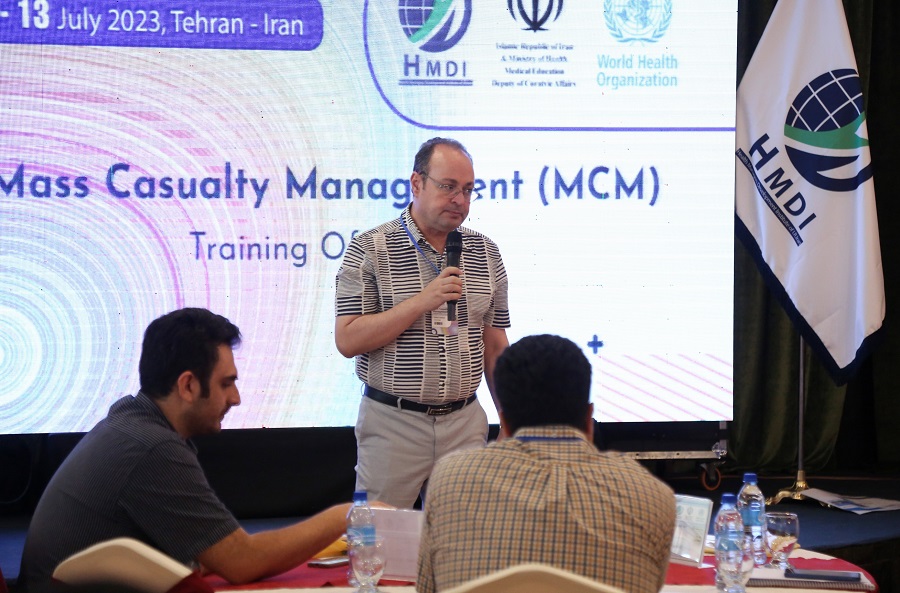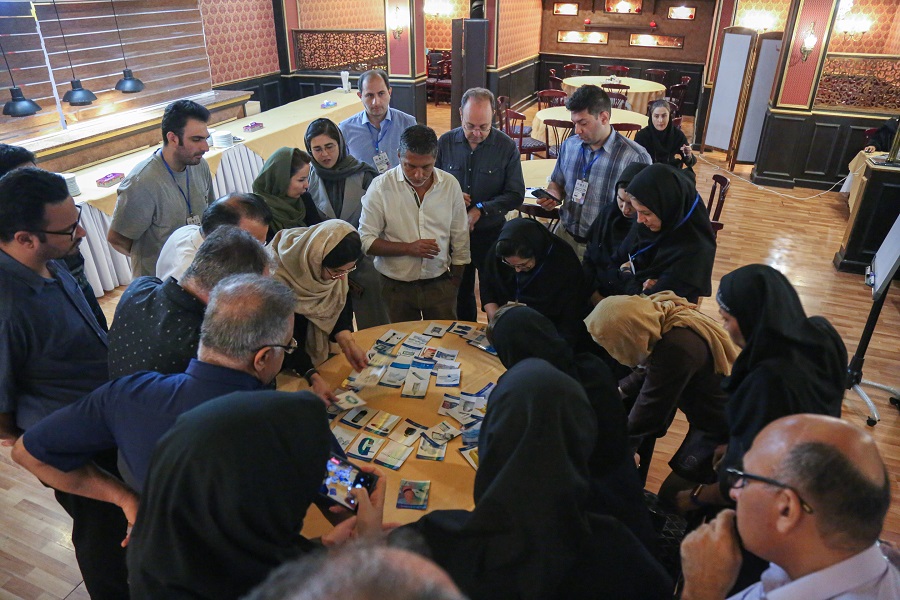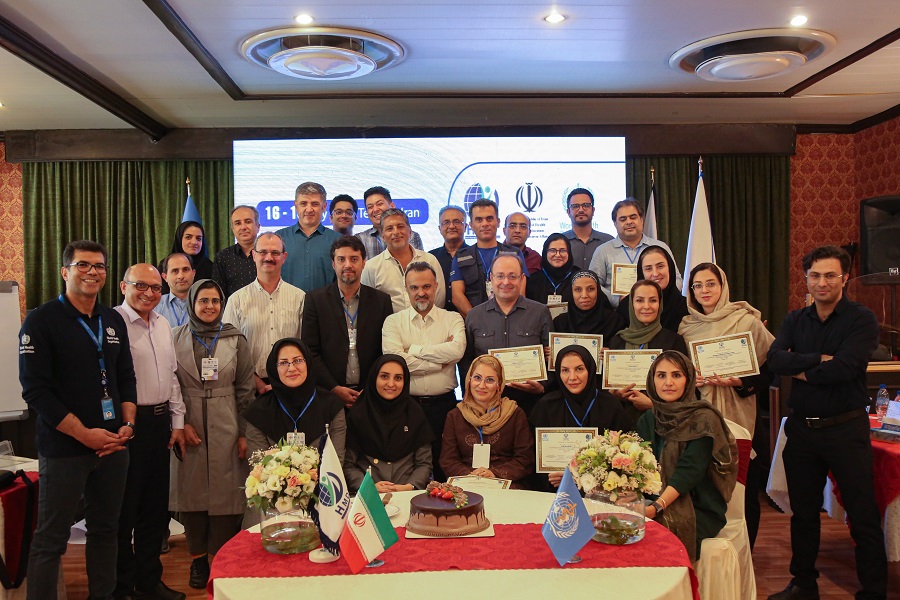
Tehran, 26 July – To enhance the capacity of hospital emergency units for responding to mass casualty incidents, the Health Emergencies Unit of WHO country office in the Islamic Republic of Iran held the First National Training of Trainers Workshop on Mass Casualty Management from 16 to 19 July 2023 in Tehran.
Twenty-five emergency medicine specialists from 18 medical universities in 13 provinces attended this course, organized in collaboration with the Deputy for Curative Affairs of the Ministry of Health and Medical Education and the Health Managers Development Institute. Supervised by experts from the Regional Office, along with local experts, the participants learned how to develop a mass casualty management plan for the emergency unit that would promote efficient response, communication, resource utilization, and ultimately the safety of the staff and patients.
 Participants working on a mass casualty management plan in a scenario of mass casualty incident
Participants working on a mass casualty management plan in a scenario of mass casualty incident
The participants actively practiced the learned skills in tabletop exercises using scenarios of mass casualties from the point of triage to the allocation of resources, and ultimately to the definitive treatment pathway.
A successful mass casualty response requires a fundamental shift in the approach to patient care. In the day-to-day care of patients, an emergency unit will aim to ensure the best possible outcome for each patient as an individual. However, in a mass casualty situation, where human and material resources are, by definition, inadequate, it is necessary to identify and provide treatment to those who will most likely benefit from medical intervention.
A mass casualty management plan includes the definition of roles and responsibilities and the operating procedures to be used in the management of the incident, for example, defining the maximum capacity of the EU and the minimum resources needed, management of patient flow, and the conceptual spaces of the EU.
This workshop not only provided the participants with the knowledge and skills required for developing a mass casualty management plan for their respective hospitals but also taught them how to effectively transfer this knowledge to others responsible for emergency response management, thereby contributing to increased preparedness for mass casualty incidents in the country.





